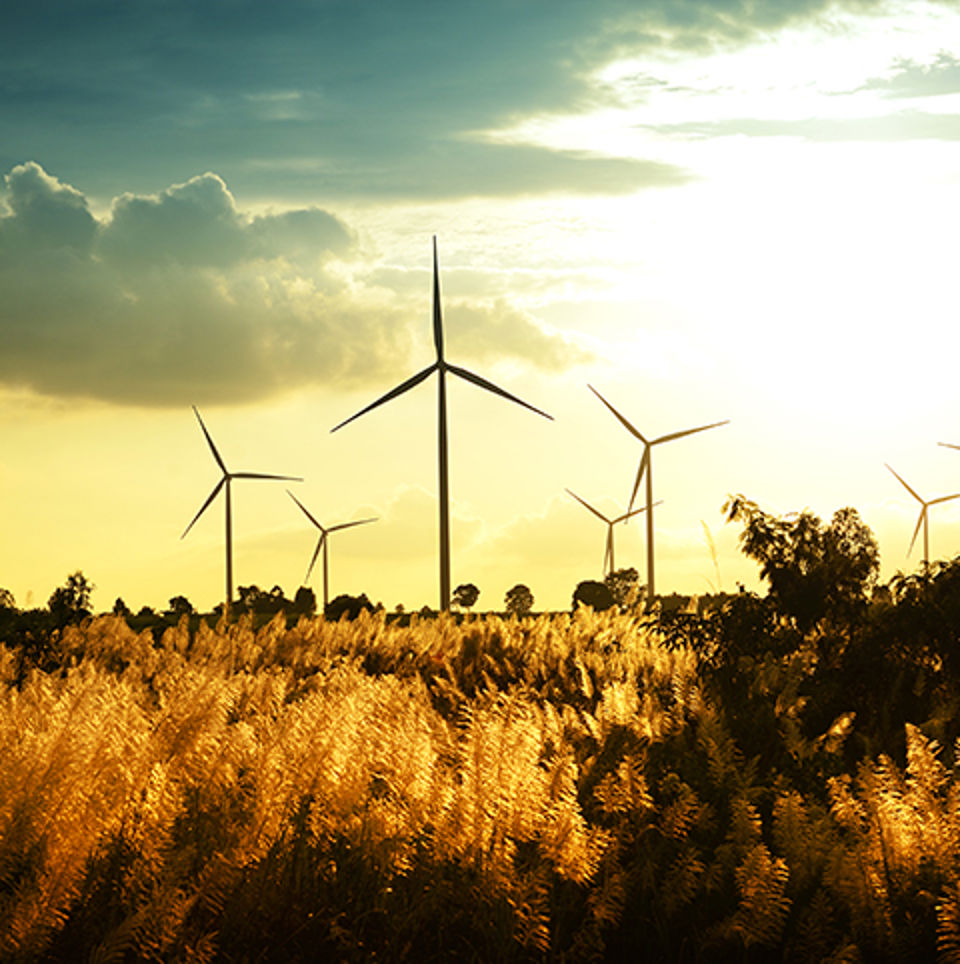Net Zero Roadmap in Detail
The effects of the climate crisis are being felt faster and are more serious than anticipated. Temperatures have reached record levels in recent years, while environmental pollution and biodiversity loss are on the verge of becoming irreversible. Every year, natural disasters are becoming more frequent and destructive.
Our Science Based Target
Arçelik has approved Science Based Targets (SBTs) for a well-below 2-degree scenario to reduce Scope 1 and Scope 2 GHG emissions by 30% and Scope 3 GHG emissions from the use phase of sold products by 15% by 2030 from a 2018 base year.
On top of this, Arçelik committed to the Science Based Targets Initiative to become a Net Zero Company as of 2050 in line with the Science Based Targets Net Zero Standard*. Within the scope of this commitment, we submitted our new near-term and net-zero targets which are aligned with the 1.5°C climate scenario to the Science Based Targets Initiative (SBTi). These targets are currently at validation process of the SBTi.
Net Zero Roadmap in Detail
Commitments through the membership of EP100
Having ISO 50001 certification for all our factories
Doubling the economic output for every unit of energy consumed globally by 2030, compared to 2010
In order to achieve our goals, we invest in solutions for energy efficiency, and work on areas such as insulation, heat recovery, energy-efficient motor transition, and process optimization in compressed air, heating, ventilation, air conditioning and lighting systems. These projects help us prevent GHG emissions as well as obtain financial savings and decrease our energy intensity.
Our target is increasing the ratio to 100% in all countries where we have manufacturing facilities by 2030.
At Arçelik, we use an internal carbon pricing mechanism in order to identify investment costs more accurately by taking into account a possible climate transition scenario where Emissions Trading Systems (ETS) or a potential additional cost mechanism for some raw materials may come into force within the framework of the EU Green Deal. Considering these scenarios and implementing an internal carbon pricing mechanism as a strategic decision-making component related to capital investments paves the way for reducing financial risks that may arise in the short and medium term.
The solar panel manufacturing facilities have fully automated production lines, and the solar panels are manufactured by automated and AI (Artificial Intelligence) integrated machines and robotic arms. We use Industry 4.0 applications and Manufacturing Execution System (MES) for product traceability and high-quality standards. These facilities are also capable of producing future cell technologies such as TopCon* and Heterojunction**
We designed our business model to offer turnkey solutions for household and SME (Small and Medium sized Enterprise) solar energy customers through our home appliances and heating, ventilation, and air conditioning (HVAC) dealers.
*Topcon: Type of a solar cell production method, called as Tunnel Oxide Passivated Contact.
**Heterojunction: Type of a solar cell production method. Heterojunction solar cells combine monocrystalline and thin-film technology.
For further information regarding the targets and the actions already implemented towards Arçelik’s Net Zero target, and solar business, please refer to Arçelik Sustainability Reports.
For detailed information, please see Arcelik’s Climate Change Strategy.
Climate Risk Management
In order to ensure the top-level oversight of climate-related risks, the Board Member who is also Koç Holding Consumer Durables’ President has been tasked with reporting the ESG-related issues to the BoD and overseeing the climate-related risks. The Board Level Early Detection of Risk Committee has also been appointed as the highest-level committee responsible for the oversight of ESG risks and opportunities.
Being a Taskforce on Climate-related Financial Disclosures (TCFD) signatory and an adopter of IFRS ISSB standards, it is essential for the Company to integrate the risks arising from the climate crisis into the Enterprise Risk Management System to execute the relevant action plans in line with the Company’s Net Zero 2050 strategy and corporate sustainability strategy. Thus, Arçelik Enterprise Risk and Insurance Management Directorate and Sustainability Department work in close coordination to identify, evaluate, measure and prioritize ESG related risks and opportunities and integrate the material topics into the Arçelik’s risk matrix.
The Sustainability Department is responsible for qualitative-quantitative identification of climate-related and other ESG risks based on scenario analyses in terms of both physical and transition risks and reports such risks to the Enterprise Risk and Insurance Management Directorate. Enterprise Risk and Insurance Management Directorate includes these risks in its reports to the Board-level Early Detection of Risk Committee at least two times a year. By supporting the TCFD and IFRS ISSB, we aim to strengthen the link between climate change and the resulting financial impacts on our business. Sustainability risks, including climate-related physical and transition risks are considered in the evaluation criteria of business decisions.
The Sustainability Council (SC), chaired by the CFO is the highest management level committee responsible for assessing and managing climate -related risks and opportunities and gathers quarterly to shape the strategy going forward. The Chief Sustainability, Quality & Customer Care Officerserves as the highest-ranking individual with responsibility for assessing and managing climate-related issues and execution of the entire sustainability strategy at the management level in the Company.
For further information regarding sustainability related risks and opportunities with their detailed description and impact analyses, please refer to Arçelik Sustainability Reports.
You can also refer to Arçelik’s Climate Change Strategy.
We are closely following laws and regulations regarding climate change, circular economy, digitalization, and sustainable product criteria policies and strategies. We also play an active role in contributing to the formation of opinions on these laws and regulations with the organizations of which we are members* of such as, DigitalEurope, APPLiA, AMDEA etc.
*Please refer to Arçelik Sustainability Report, “SELECTED MEMBERSHIPS AND ARÇELİK’S CONTRIBUTIONS” for breakdown of the payments made to trade associations for managing our business, the % of payments and why the association is important for us. Please note that these payments are not related to any political campaigns or lobbying activities.
As a company with approved Science Based near term targets, and a Science Based Net Zero 2050 commitment in place to set science-based net zero targets, Arçelik is highly committed to act in line with the goals of the Paris Agreement. Therefore, in its relations with stakeholders including but not limited to trade/industry associations, coalitions, NGO’s, suppliers, B2B customers, Arçelik commits to act and cooperate in line with the necessities of the Paris Agreement. Our sector related engagements and representations in the leading and major trade/industry associations are monthly reported to the top management. To the best of our knowledge, the leading and major industry associations that Arçelik has membership have no contradicting opinions against the Paris Agreement criteria. In case such contradicting opinions arise, Arçelik commits to not be part of any organization or cooperation that would divert its mission away from transition to a low carbon economy, aiming for a net zero world no later than 2050. On top of this, Arçelik tries to be in line with international climate-related initiatives and regulations and clearly declares its position against against these such as the European Green Deal, Emission Trading System (ETS), Carbon Border Adjustment Mechnasim (CBAM), Ecodesign for Sustainable Products Regulation (ESPR) and so on.
For detailed information, please see Arçelik’s Review on Industry Association Memberships.
Building on Arçelik’s global approach to stakeholder engagement, Arçelik carefully manages its engagement with public institutions, non-governmental organizations, sectoral institutions including but not limited to climate change specific issues.
For detailed information, please see our Global Sectoral Relations Management & NGO Membership Policy Document.
Supplier ESG Program
We are eager to transform all together with our supply chain and minimize the impact of the operations in the value chain in total. Therefore, it is important that we help and guide our suppliers to set environmental targets, measure their progress, and reduce their impact. Thus, we developed a Supplier Sustainability Data Monitoring and Development Program. Through this program, we are sending our suppliers a survey with a list of both qualitative and quantitative questions about the ESG issues including climate-related matters. We assess suppliers based on the data provided to understand their level of maturity in terms of ESG integration into their business based on our internal assessment. We also conduct third-party audits to monitor their performance. If any findings signal a potential ESG risk, we provide corrective actions plans to the related suppliers.
For further information, please see our Supplier ESG Program procedure.

Energy Efficiency
We track and improve the operational energy efficiency by identifying areas that require upgrades through effective audit mechanisms.

Renewable Energy Technologies
Producing and purchasing renewable energy has an important role in reducing Scope 1 and 2 GHG emissions.

Carbon Pricing
As Beko, we have been using the Implicit Carbon Price Model since 2010 to measure the low-carbon transition impact of applied energy efficiency projects and investments.

Greenhouse Gas Emissions in The Value Chain
In line with our strategy to combat climate crisis, we have set greenhouse gas emission reduction targets and we aim to increase awareness across all stakeholders.